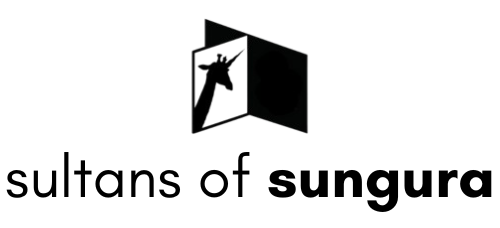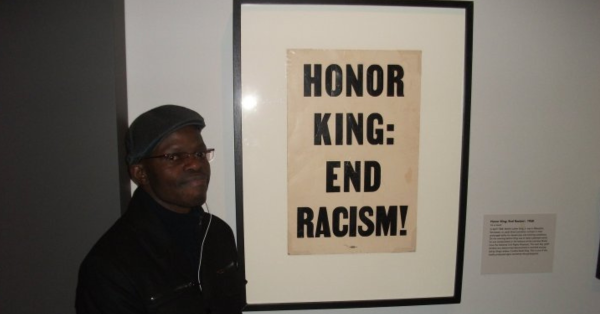 |
| Maya Angelou (Photo Credit: Emerging Women) |
Black women’s poet laureate, author and civil rights activist Maya Angelou’s death last weekflared up homage and fresh interest in her work.
Angelou’s artistic inventory is varied, spanning across autobiography, poetry, film and essays, essentially set to a wave-tossed “voyage into self.”
While her claimto fame is the childhood memoir, “I Know Why the Caged Bird Sings,” Angelou was also a forceful poet, with a voice uniquely her own.
Liberal cross-fertilisation of genres explains the pictorial facility, sensory intensity, emotive potency and uninhibited self-portraiture which throbs through the tapestry of her major works.
Her work distends from personal hindsight and orbits wider to capture issuesof universal significance, with identity, race, femininity and tolerance foremost on her thematic taskbar.
Angelou survived harrowing experiences, including segregation, rape as an eight-year old, loss of her voice for five years, teenage pregnancy and descent into pimping and prostitution as a youth to become a universally renowned artist.
Yet surviving was less than what she stood for. She later said that she had done hitherto all she knew how to do; as she knew better, she would do better.
“My mission in life is not merely to survive, but to thrive; and to do so with some passion, some compassion, some humor, and some style,” she reflected.
And so did she thrive, living and loving out loud, with the foregoing qualities which underlying the subsequent range of genius.
Knowledge became the launch pad to rejuvenescence, life enhancement, maximisation of personal potential and influence.
She was as an advocate for tolerance and justice, a champion for society’s ostracised and model global citizen, bar the narrow partisan choices that dented her effigy.
With William Shakespeare as her “first white love,” and Langston Hughes and W.E.B Du Bois, among her enduring influences, Angelou took to poetry as a trauma-busting outlet at an early age and found a voice which earned her the signature “the black woman’s poet laureate.”
Literature Today takes a look at Angelou’s poetry which has been, unfortunately, overlooked in the rave critical reception occasioned by her seven-part autobiographical series taking off with “Caged Bird” in 1969 and ending with “Mom and Me and Mom” last year.
Her poetry, a representative assortment of which we consider, appears in several volumes including “Just Give Me a Cool Drink of Water ‘fore I Die,” “Oh Pray My Wings Are Gonna Fit Me Well,” “I Shall Not Be Moved” and “Amazing Peace.”
“A Brave and Startling Truth” urges the inhabitants of the world to consider the beauty of diversity and so to live and let live. It is a plea for cordial co-existence among people of different sectarian persuasions.
When we consider our humanity and fraternity, finitude and complementarity, our mortality – the ephemeral tenure allotted man, hence the vanity of wasting it on conflict – we will see reason in embracing others as they are instead of tearing them apart for what they are not.
“We this people, on this minuscule and kithless globe/ Who reach daily for the bomb, the blade and the dagger/ Yet who petition in the dark for tokens of peace/ We this people on this mote of matter/ In whose mouths abide cankerous words/ Which challenge our very own existence,” Angelou reproves.
The poem is a topical deliberation of a somehow under-discussed problem. As rogue science fashions adverse implements and arsenals to guard one territory and subjugate another, the overall dynamicof conflicting self-directed endeavours is destruction of what God committed to our joint stewardship.
Geopolitical antagonism and regressive technology are urging the world to the brink of annihilation. The Bulletin of Atomic Scientists has been consistently warning about the imminence of the destruction of human civilisation by “dangerous technologies of our own making.”
“Science has created Frankenstein monsters and doubts its moral ability to control them. We have hydrogen bombs that are ready to be unleashed upon the world,” Billy Graham articulates.
“How long it will only be in the talking phase we do not know, but we do know that our scientists and military leaders are warning that we could be in a nuclear war at any time,” he says.
Climate changeis soaring out of control, even eliciting clear-cut admissions of defeat from principal institutions.
The UN is screaming that the world is on fire: “It is ‘virtually certain,’ the U.N’s body studying climate change announced in a recent report that intense weather is the new normal; droughts will be longer and more severe, storms more devastating, fires larger, and floods higher,” reports the Newsweek.
Angelou also anticipates a truce to clashing religions: “When the rapacious storming of churches/ The screaming racket in the temples have ceased/ When the pennants are waving gaily/ When the banners of the world tremble stoutly in the good clean breeze.”
Religious intolerance is a smoke in the nostrils with a destabilising trail world over – more recently in North and West Africa and the Arab region.
Since the time of the medieval Crusades, the world only enjoys brief interludes of calm as nations are riven into trouble spots by warmongers under the banner of religion.
Boko Haram is currently the object of hashtags demanding the return of 236 kidnapped teenage girls but the problem of intolerance seems to cut deeper than the scope of social media campaigns.
InBudiriro heretic and criminal bogeymen who has been abusing girls and women under the guise of religion recently unleashed violence on police officers and journalists – fiendish behaviour which can be in no way traced to the Christianity they profess.
“Million Men March” is one of the many Angelou poems regarded as “African-American anthems.” Angelou was an active participant in the civil rights movement and worked with both Malcom X and Martin Luther King Jr.
She was impelled into politics after hearing Dr King speak at a church and besides a play entitled “Cabaret for Freedom,” penned numerous verses in defense of blacks.
“The hells we have lived through and live through and live through still/ Have sharpened our senses and toughened our wills/ The night has been long/ This morning I look through your anguish/ I know that with each other/ We can make ourselves whole,” she exhorts.
The poem points to the futility of a fragmented fight against injustice. The powerless are, however, unstoppable when they converge as a front and as a family.
“Still I Rise” chronicles the indefatigable self-assertion of blacks against years of servitude and debasement.
“You may write me down in history/ With your bitter twisted lies/ You may trod me in the very dirt/ But still I rise… Out of the hearts of history’s shame/ I rise/ Up from a past that’s rooted in shame/ I rise… Leaving behind nights of terror and fear…” Angelou charges on behalf of the worldwide Negro community. The poem was recited at Nelson Mandela’s inauguration.
There still remains to be levelled, however, a posthumous charge-sheet against Angelou for being complicity with the downgrade of moral standards, ostensibly for the sake of global citizenship and, less pretentiously, in keeping with her avowed loyalty to the Democratic Party.
Espousal of global citizenship – the fallacy of being all things to all men – entailsceding identity to be part of an undefined ideal.
“On the Pulse of Morning,” for example, is flawed by the bracketing together of natural conditions such race and acquired perversions such as homosexuality while her public support and private lobbies for same-sex marriage negated her professed Christianity and contradicted her Africanness.


